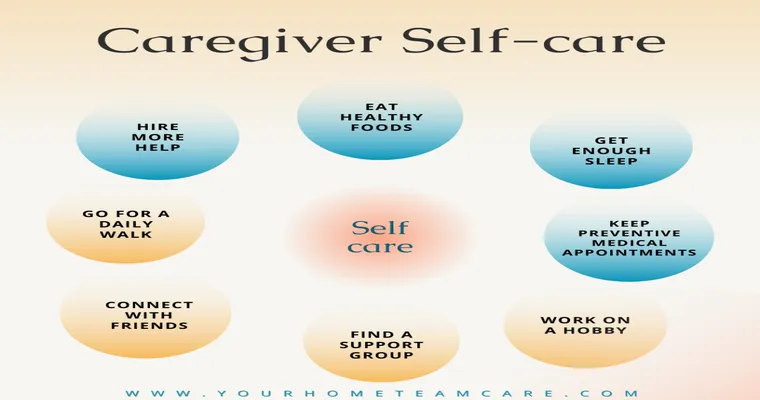Caregiving can be a rewarding yet challenging experience, often leading to significant "stress", "burnout", and emotional fatigue. As a caregiver, it is essential to recognize the impact that providing care can have on your mental and physical well-being. With the right "self-help strategies", you can effectively manage caregiver stress, ensuring that both you and the person you care for can thrive. This article will explore practical approaches to help you cope and find balance in your caregiving journey.
Understanding caregiver stress is the first step toward managing it. Many caregivers experience feelings of isolation, frustration, and anxiety, often resulting from the demands of their role. It is crucial to acknowledge these feelings instead of dismissing them. Recognizing that you are not alone in experiencing these challenges can be empowering, and seeking support from friends, family, or support groups can provide an essential outlet for sharing experiences and feelings.
One effective self-help strategy for managing caregiver stress is practicing "mindfulness". Mindfulness involves being present in the moment, which can help reduce anxiety and promote emotional well-being. Simple practices such as deep breathing exercises, meditation, or yoga can create moments of calm and clarity in your daily routine. Even dedicating just a few minutes a day to mindfulness can significantly impact your stress levels.
Another valuable self-help approach is setting "boundaries". It is essential to understand your limits and communicate them effectively to others. Caregiving should not come at the expense of your well-being. Learning to say no and delegating tasks when possible can help alleviate some of the pressure. Remember, taking care of yourself is not selfish; it is necessary for being an effective caregiver.
Regular physical activity is another crucial element in coping with caregiver stress. Engaging in exercise releases endorphins, which are natural mood lifters. Whether it’s a brisk walk, a dance class, or a workout at the gym, finding an activity that you enjoy can provide a much-needed break from caregiving responsibilities and help improve your overall mood and energy levels.
Additionally, maintaining a healthy diet can play a significant role in managing stress. A balanced diet rich in fruits, vegetables, whole grains, and lean proteins can boost your energy and enhance your ability to cope with stress. Staying hydrated and avoiding excessive caffeine and sugar can also help stabilize your mood and reduce feelings of anxiety.
Connecting with others who understand your situation can be incredibly beneficial. Consider joining a "support group" specifically for caregivers. These groups provide a safe space to share experiences, gain insights, and receive encouragement from others facing similar challenges. The sense of community and belonging can alleviate feelings of isolation and provide practical advice on coping strategies.
Lastly, do not hesitate to seek professional help if you find yourself overwhelmed. A therapist or counselor can provide you with tools and resources to navigate your emotions and stress more effectively. Professional support can help you develop personalized coping strategies tailored to your specific situation.
In conclusion, coping with caregiver stress is a journey that requires self-awareness and proactive strategies. By incorporating mindfulness, setting boundaries, engaging in physical activity, maintaining a balanced diet, connecting with peers, and seeking professional help, caregivers can create a more sustainable and fulfilling caregiving experience. Remember, taking care of yourself is essential not only for your well-being but also for the quality of care you provide to your loved one. Embrace these self-help approaches and take the necessary steps to nurture both your mind and body.





